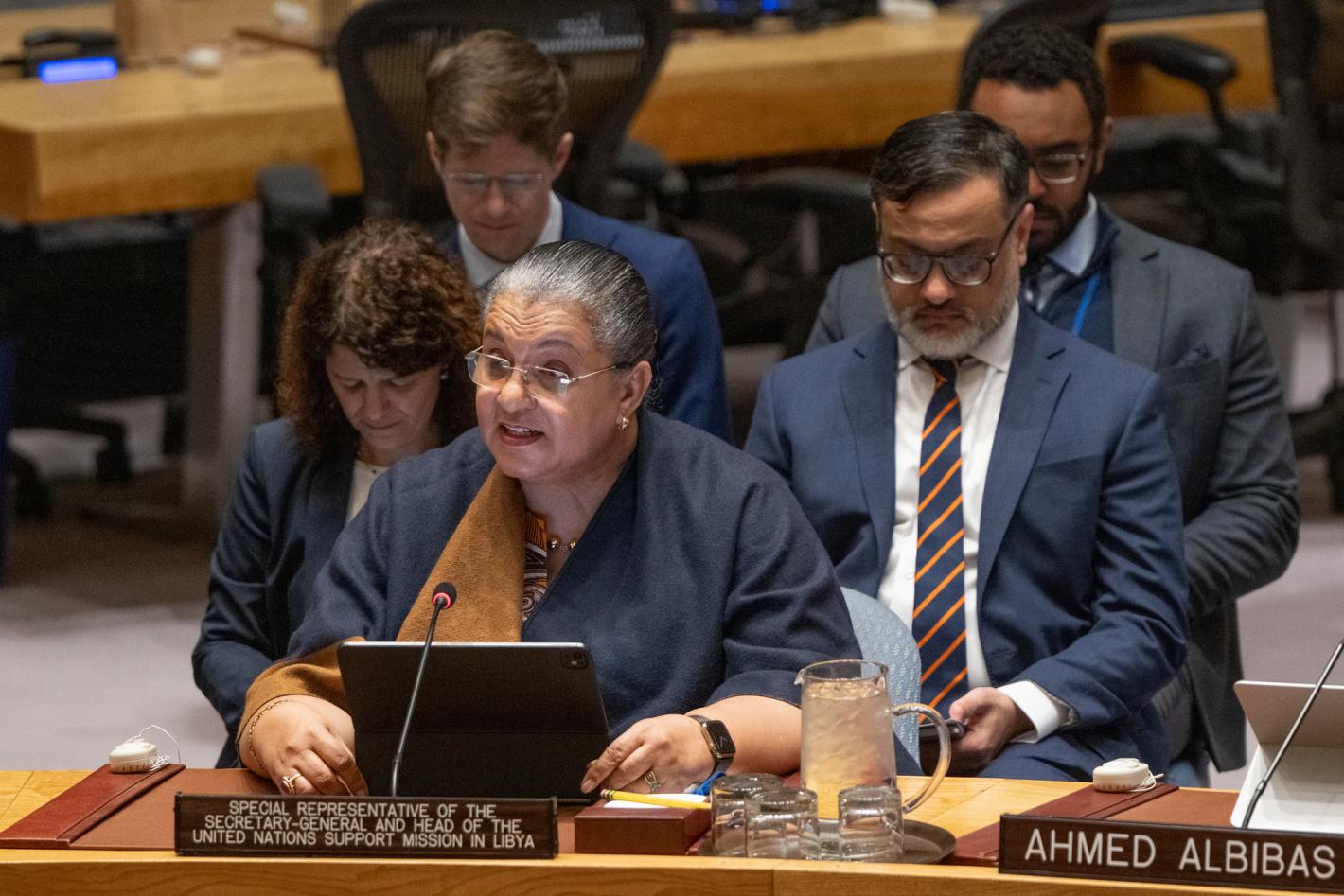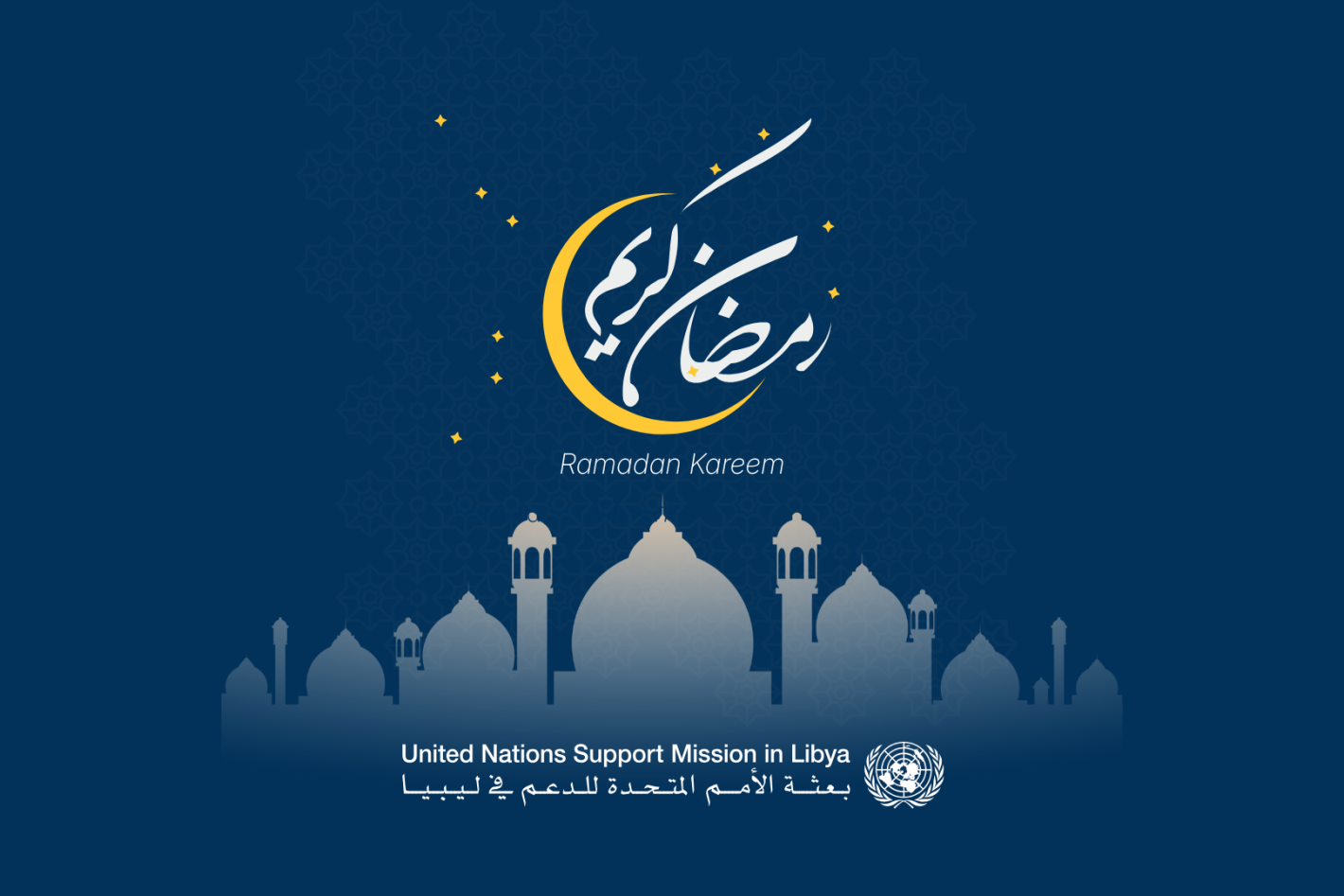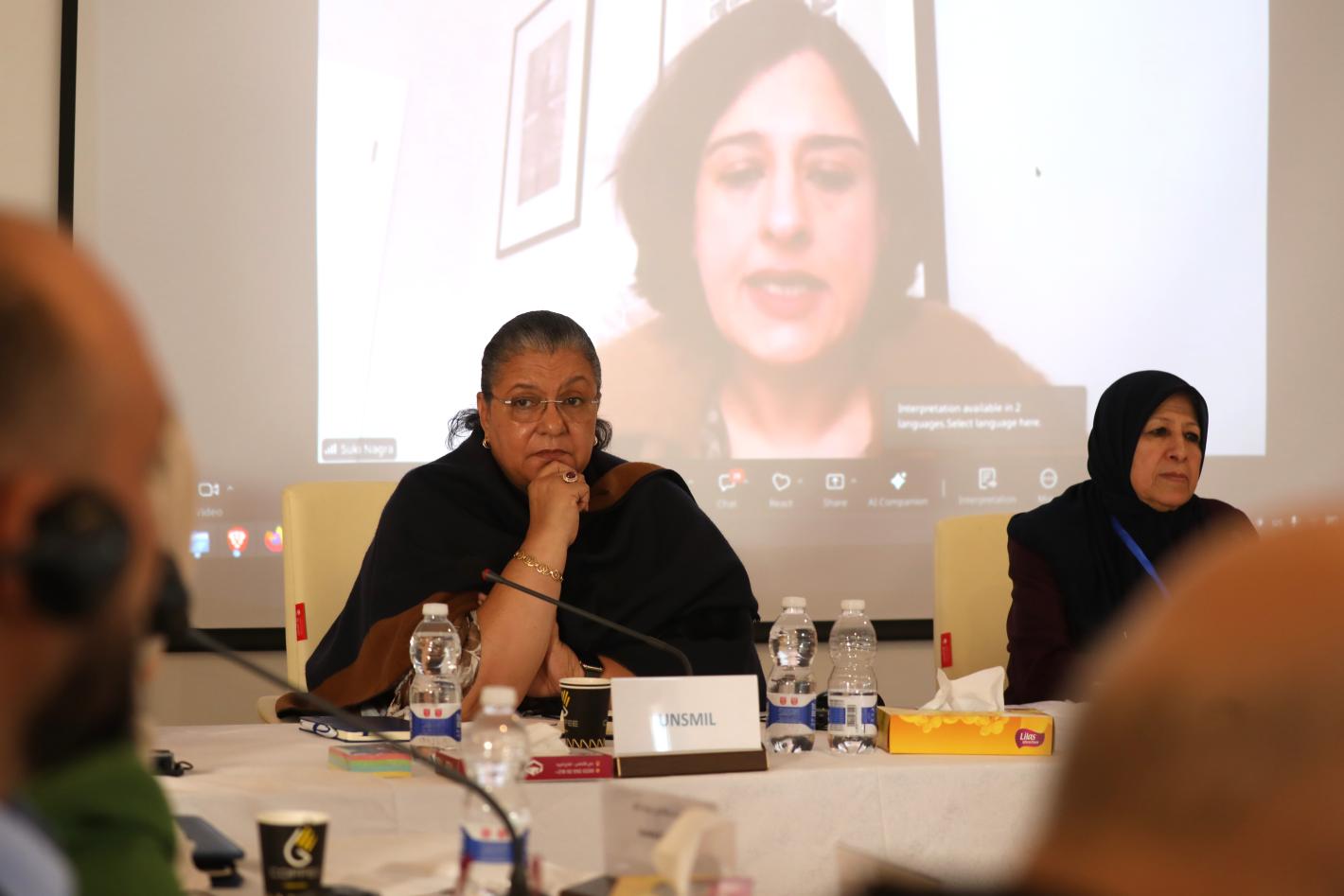طرابلس، 10 تموز/يوليو 2023 – حث مجلس الأمن في قراره رقم 2656 لسنة 2022، والذي تمت المصادقة عليه في 28 تشرين الأول/أكتوبر 2022، المؤسسات والأطراف الرئيسية الليبية "على الاتفاق على خريطة طريق لإجراء الانتخابات في أقرب وقت ممكن في جميع أنحاء البلد، على أساس دستوري وقانوني، من خلال الحوار والحلول الوسط والتفاعل البنّاء على نحو شفاف وشامل للجميع بهدف تحقيق أمور تشمل تشكيل حكومة ليبية موحّدة قادرة على ممارسة الحكم في جميع أنحاء البلد وتمثل الشعب الليبي بأكمله". وعلى ضوء توجيهات مجلس الأمن هذه، تواصلت خلال الأشهر القليلة الماضية مع كافة القيادات الليبية، السياسية والأمنية، ومع المؤسسات ذات الصلة، وممثلي المجتمع المدني والنساء والشباب، والأعيان والمجالس البلدية والأحزاب السياسية وغيرها من مكونات المجتمع الليبي لمناقشة كيفية إطلاق مسار يفضي إلى انتخابات ناجحة وشاملة وذات مصداقية في أقرب فرصة ممكنة، وفي ظل بيئة آمنة وعلى أساس تكافؤ الفرص.
كما شجعت باستمرار كلا من مجلس النواب والمجلس الأعلى للدولة على الاضطلاع بمسؤوليتهما وإنجاز الإطار الدستوري والقانوني المنظم للانتخابات. وفي هذا الصدد، خصصت البعثة فريقاً يضم خبراء في الانتخابات والدستور والمساواة بين الجنسين بغية تقديم المساعدة الفنية للجنة (6+6) أثناء إعداد اللجنة لمشروعي قانوني الانتخابات.
وإذ تشيد البعثة بجهود لجنة (6+6) باعتبارها خطوة مهمة إلى الأمام، إلا أنها تجدد التأكيد على أن مشروعي قانوني الانتخابات في صيغتهما الحالية لن يمكّنا من إجراء انتخابات ناجحة. وعليه، ثمة حاجة إلى مزيد من العمل لجعل مشروعي قانوني الانتخابات قابلين للتطبيق عبر معالجة الثغرات القانونية وأوجه القصور الفنية التي حددتها المفوضية الوطنية العليا للانتخابات. ويتعين كذلك على المؤسسات والأطراف الرئيسية الليبية التوصل إلى تسوية سياسية شاملة بشأن أبرز النقاط المختلف عليها سياسياً والتي تم تحديدها في إحاطتي أمام مجلس الأمن في 19 حزيران/ يونيو، من قبيل شروط الترشح للانتخابات الرئاسية على سبيل المثال، واشتراط إجراء جولة ثانية إلزامية للانتخابات الرئاسية، ومطلب تشكيل حكومة مؤقتة جديدة قبل موعد الانتخابات.
واستناداً على القرار رقم 2656 لسنة 2022، أبلغتُ مجلس الأمن بشأن اعتزامي جمع المؤسسات والفاعلين الليبيين الرئيسيين، أو ممثليهم الموثوق بهم، للتوصل عبر المفاوضات الشاملة والحلول الوسط إلى تسوية نهائية بشأن أكثر القضايا إثارة للخلاف. وفي الأسابيع المقبلة، سوف أكثف تواصلي مع المؤسسات الليبية الرئيسية بالإضافة إلى القيادات السياسية والأمنية تمهيداً لهذه المفاوضات.
وأعوّل على تعاون جميع المؤسسات الليبية ذات الصلة والأطراف الفاعلة في عملنا معاً لإيجاد الحلول الوسط اللازمة لتسوية النقاط المختلف عليها سياسياً والتوصل إلى حل سياسي يمهد الطريق لانتخابات ناجحة. كما أدعو مجلس النواب والمجلس الأعلى للدولة إلى التعاون مع المفوضية الوطنية العليا للانتخابات في معالجة الثغرات القانونية وأوجه القصور الفنية التي تم تحديدها وإجراء التعديلات الفنية اللازمة على مشروعي القانونين اللذين أعدّتهما لجنة (6+6) على نحو يجعهما قابلين للتطبيق.
يتحتم على الأطراف الليبية كافة استخلاص العبَر من الأخطاء والعثرات التي وقعت في العامين 2021 و2022 والنأي على أي تصرّف - بما في ذلك القرارات الأحادية أو التي تفتقر إلى الشمول - من شأنه أن يعمق الأزمة أو يصرف الانتباه عن هدفنا المشترك المتمثل في التمكين من إجراء انتخابات ناجحة تلبي تطلعات الشعب الليبي.






